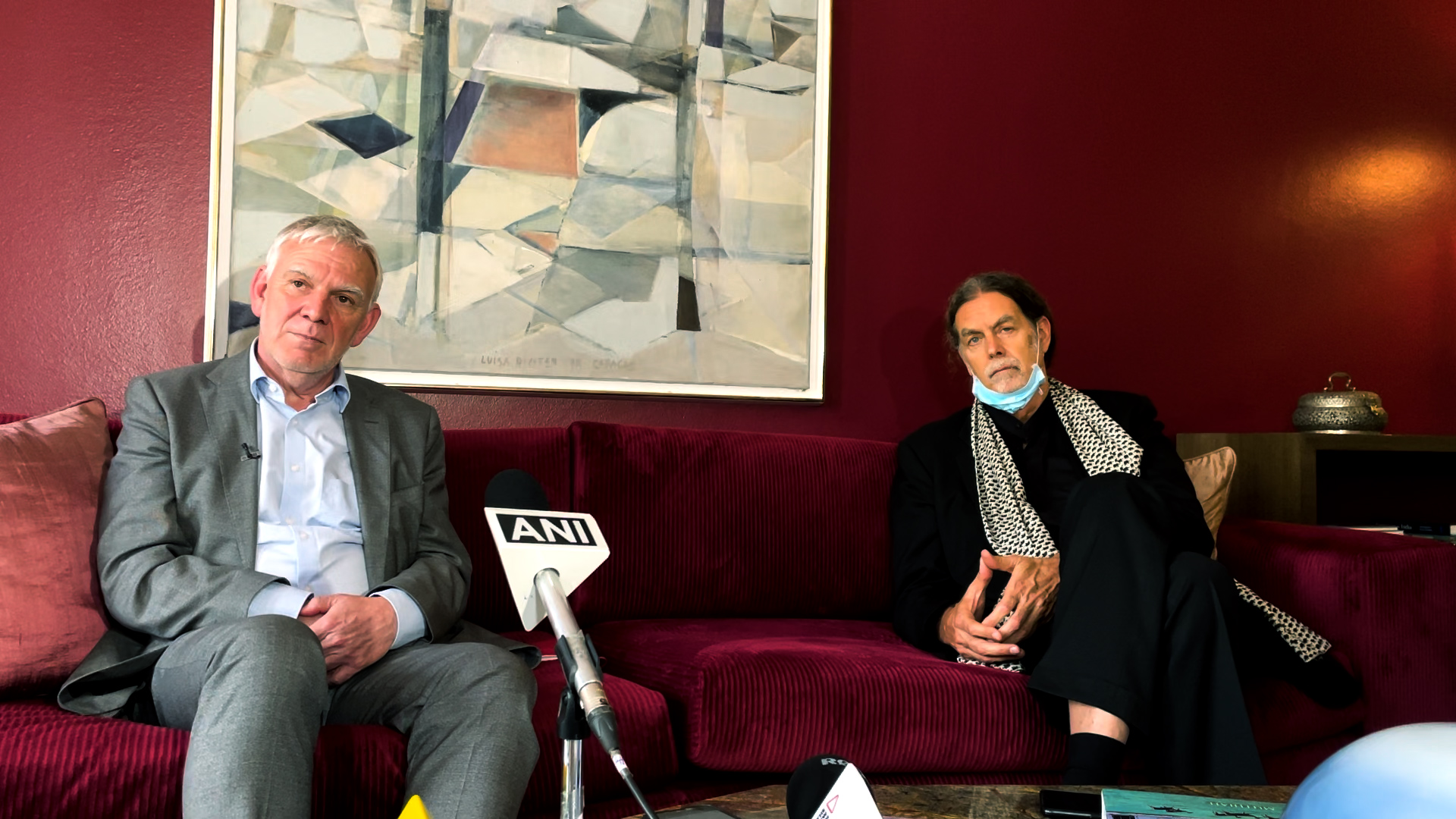NEW DELHI: Ahead of Prime Minister Narendra Modi’s visit to Germany next month, Jochen Flasbarth, State Secretary of the German Ministry for Economic Cooperation and Development arrived here on a two-day visit and discussed a wide range of issues including boosting bilateral trade with Foreign Secretary Harsh V Shringla and Indian officials on Friday.
Flasbarth was accompanied by the German ambassador to India, Walter J Lindner.
In an exclusive chat with The New Indian, the visiting German secretary Flasbarth spoke on Germany’s collaboration with India for supply chain and ingenious production under its Make in India initiative.
“During COVID, we all have seen how dependent we are on the global supply chain. In Germany, we realise that we rely on the supply chain in other regions. We are looking for ways to make our economy more resilient in this regard. But we should not be in contrast with international trade. We need international collaboration,” Flasbarth said during the interaction at the residence of the German Envoy to India in the afternoon.
On being asked whether Germany will relocate or move any of its manufacturing facilities to India, where a massive workforce is unemployed, he said, “It’s an interesting question. No, the Government doesn’t decide that (moving facilities of companies). That is decided by the companies. We have seen movements of companies from Germany to other regions of the world. For example, the textile industries.”
Answering a query on Indo-Pacific co-operation, he said, “A country like Germany should be able and competitive enough to have a full-fledged economy. And, that is what we also wish for India and other countries. The European Union expanded regional cooperation between Europe and Africa. So, for us, it’s very understandable that other regions of the world also make the best of regional cooperation. Therefore, the rest of the world can benefit from that (Indo-Pacific).”
On the possibility of a 2+2 Strategic dialogue with India in the future, the German State Secretary of the German Ministry for Economic Cooperation and Development asserted, “We have a different format, which is very well established, with not just two ministers but several ministers, depending on the agenda. I found that format very, very fruitful and helpful.”
Speaking to The New Indian, Secretary Flasbarth said, India and Germany have a slew of areas to collaborate – including mobility and sustainability.
“Two years ago, we sent a letter to India on sustainable development. The German side held a series of discussions including virtual meets during the period. I have spoken to several ministries – energy, coal, environment ministries,” Flasbarth said.
“We are phasing out coal more rapidly. To be full-fledged renewable energy-based, we need to wait till 2040. In the interim period, we need gas technologies,” he added.
“We have a proper energy supply, we are looking for broader partnership agreements between Germany and India. That is called the Green and Sustainable Development Partnership. We are at the final stage for the final version of the agreement. Mobility and sustainability and SDG are among the areas identified for working together with India,” he added.
Raising concerns about the Russian attack on Ukraine, he said, “It’s a very different world. We never expected the situation.”
“Apart from misery and deaths, repercussions of (Russian President Vladimir) Putin’s war is that the international attention has gone away from huge challenges for mankind which are climate change, poverty reduction, infrastructure and moving towards military spending,” German envoy Lindner added.
Commenting on the possibility of inking a trade agreement between Germany and India, the German Ambassador Lindner said, “It is in everyone’s interest to get the India EU FTA(Free Trade Agreement) talks going ahead. The EU Commission President will be here in the coming days. Let’s see what they have to say.”










